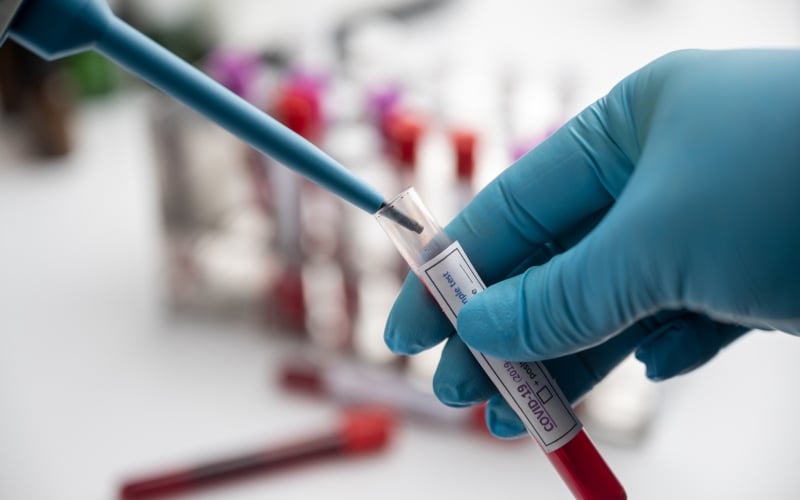Rural areas are notoriously deprived of access to good healthcare. Much of the problem is logistical. Rural hospitals service enormous geographical regions that are home to a relatively modest number of people. This means that people living in rural areas may be many miles removed from the nearest hospital. Even when they can reach the healthcare facility, it may lack many of the resources that would be found in a city. It’s a problem that can have lethal consequences. In this article, we take a look at how people living in rural communities can work around the limitations of their region to receive the best possible care.
Wearables
Wearable healthcare devices allow you to constantly take data on your personal health. Fitness trackers are very simple versions of this technology. It may be silly to think that a smartwatch you buy for one hundred dollars on Amazon could have a transformative effect on your health, but they have, in certain cases, been life-saving.
Tracking your fitness is an obvious benefit. People using a fitness tracker for the first time often learn that they aren’t nearly as physically active as they previously thought. However, it’s the more granular data that can have the biggest impact. Fitness trackers keep records of your heart rate. Some even take your blood pressure. For most people, these are readings that they only get every one to two years when they have their wellness visits at the doctor’s office. Getting access to those readings every day can help you catch life-threatening problems before they grow.
Fitness trackers are just the tip of the iceberg. Modern heart and glucose monitors also take constant data, sending readings directly to physicians. For a diabetic, this is transformative. Now when if someone with diabetes goes to sleep only to have their blood sugar plummet, they can get medical intervention even if they never become alert enough to realize the problem.
Virtual Health Appointments
You aren’t necessarily limited by geography when it comes to healthcare these days. While serious appointments still happen in person, you can handle minor issues through remote technology. For example, if you have a simple question, you may be able to contact your healthcare provider through an application.
Instead of spending half your day at the doctor’s office, you can get the answer to your concern delivered right to your phone. This saves you time, while also relieving some of the burden on your broader healthcare system. When doctor’s offices are less congested by small issues, it benefits everyone in the surrounding community.
Research State and Federal Insurance Benefits
One of the biggest barriers to care in rural America is insurance access. If this is keeping you from receiving high-quality care, there may be local solutions in place to help. Look into what resources your state provides uninsured individuals.
There are also federally provided resources, including the Affordable Care Act, which guarantees access to healthcare. Do your research to find out what options will provide you with the best care for your money.
Preventive Care
Of course, the best way to avoid significant healthcare complications is to practice preventative care. Unlike all of the other suggestions on the list, this is something that happens almost exclusively on the home front.
To improve your preventative care:
- Plan your vaccines carefully: Covid, the flu, and other seasonal illnesses can result in fatal complications. It’s easy to dismiss these vaccines as unnecessary or inconvenient, but it only takes a few minutes of your time to protect yourself and the members of your community from illness and even death.
- Eat right: Heart disease, type 2 diabetes, and many other debilitating illnesses are largely caused by dietary decisions. You can significantly improve your long-term health by making sensible dietary decisions every day.
- Exercise: Most doctors recommend at least thirty minutes of exercise every day. Keep in mind that even if your job involves heavy labor, it isn’t necessarily producing the effect that your body needs to stay healthy. Vigorous exercise raises your heart rate, strengthening your cardiovascular system in the process. Good exercises can include running, swimming, bike riding, and even speed walking. Feel free to mix it up to keep your workout routine fresh and fun.
Although preventative care cannot completely substitute seeing a doctor, it is a vital component of staying healthy and can go a long way toward helping you avoid major health events.
Mobile Healthcare Clinics
While you can’t necessarily control what sort of access you have to mobile healthcare clinics, they can be an excellent supplementary resource in the communities where they are active. Basically, they are large buses with flexible interiors that can be reconfigured to suit a variety of different medical scenarios.
They are frequently used by hospitals that service large communities in which many people do not have good access to transportation. Mobile clinics bridge the service gap by bringing care directly to people who need it the most.
Obviously, this solution will only work if your community has these vehicles already in place. You can find out by contacting your nearest hospital to find out what sort of service options they have for people without access to transportation.
Even if they do not have mobile healthcare clinics, they may have other solutions in place to make it easier. Alternatively, you may find community-based resources that are designed to help you access care. Local advocacy is a powerful thing. While rural towns are infamous for their spotty access to healthcare, they are also well known for their close community ties. Find out what sort of resources are available to you.
—
This content is made possible by Andrew Deen.
Photo by Jenny Hill on Unsplash
The post Rural Men’s Health – Getting Access to the Healthcare You Need appeared first on The Good Men Project.
Original Article










